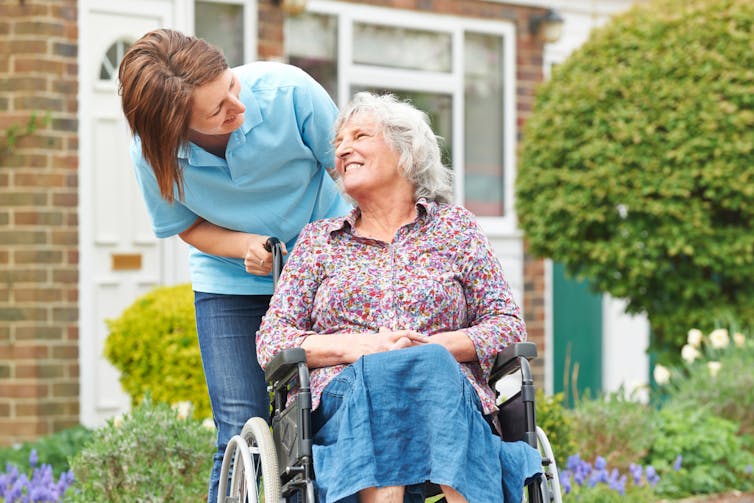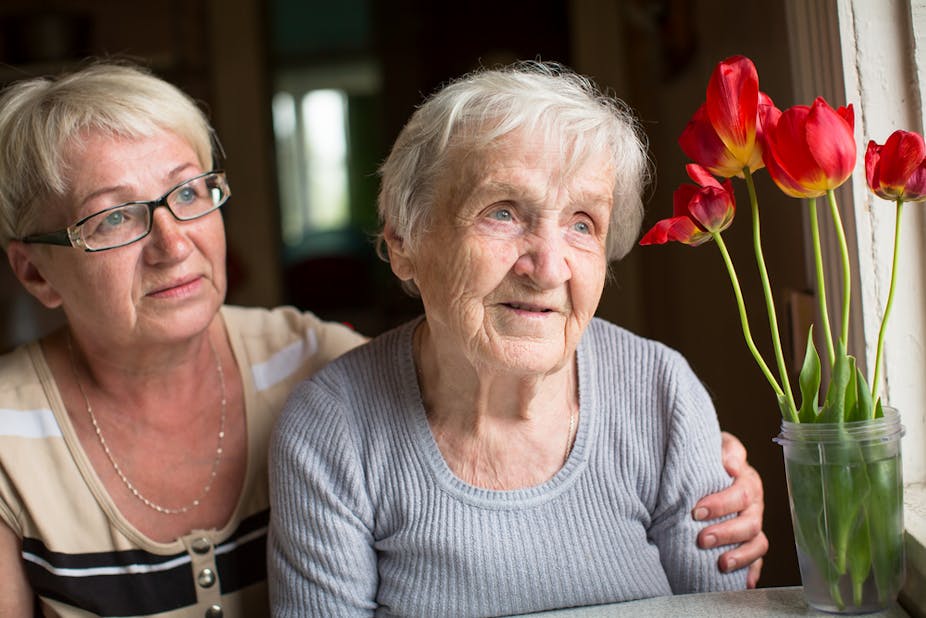Care minister David Mowat has a big idea for dealing with the escalating demand for care in the future: we should be looking after our parents, in the same way that they looked after us as children. As he recently told a select committee of MPs:
One of the things that has struck me is no one ever questions that we look after our children – that is obvious. No one says that is a caring responsibility, it is what we do … I think some of that logic and some of the way we think about that in terms the volume of numbers that we are seeing coming down the track will have to impinge on the way that we think about caring for our parents. Because it is a responsibility in terms of our lifecycle which is similar.
He’s not alone, health secretary Jeremy Hunt has also previously called for people to take more care of their elderly relatives. At face value, there are some appealing aspects of this vision. The idea of a life cycle is an attractive one – after looking after children, to receive care back in old age seems like natural justice.
It conjures up images of multi-generational households where grandparents help with childcare and homework while parents are out at work. Or even of the family in Charlie and the Chocolate Factory, where the grandparents share a bed in the lounge, and everyone rubs along. They’re poor but happy, with no 15-minute care visits or institutionalised neglect.

It would indeed avoid old people being sent into care homes where they rarely encounter young people. But before we all bring a double bed down into the lounge for our parents and grandparents, let’s think through some of the practicalities.
There are issues with family care
Many of us live at a distance from our parents these days, so we aren’t able to just “pop in” on them regularly. So if coping at home isn’t an option for ageing parents, we must decide whether they should disrupt their friendship networks and affinity to a place, to move near to us; or whether we should give up our own work and networks to live with or closer to them. There seems no other option bar spending a lot of time on the motorway, delivering care at a distance.
We know that lots of family members are already unpaid carers. Carers’ UK has indicated that over 6.5m people in the UK offer informal care, many of who are adult children supporting their parents. Around half of these are also balancing care work with employment, and other family demands.
Caring for one or more frail parent can be demanding. As people approach the need for formal care services they will usually be quite frail, have complex needs and that often includes the advanced stages of dementia. Their children’s family home may no longer be an appropriate setting if there is no downstairs toilet, walk in shower or accessible bedroom.

We must also be aware of who is likely to be tasked with this caring role – most often daughters and other female relatives. Both paid and unpaid care is a gendered task that often falls to women. And some countries, for example Japan, have explicitly moved away from this because of the recognised deficiencies of family care, such as the pressures it places on informal carers.
Better social care
Of course not everyone has children to look after them and those that do may not necessarily want to be cared for by their children – at least in relation to intimate tasks such as washing and dressing. It is disingenuous to suggest that adults who care for their parents have the same type of relationship and intimacy as parents caring for children. For adults it requires negotiating a very different kind of relationship, which both parties may struggle with and which may harm the bonds between them.
Britain has progressed down a path towards a welfare state since 1948, in which good care in old age is something we are entitled to as part of the common rights of citizenship. It should not be subject to the patchy, partial and sometimes fractious relationships we have within families.
Of course many families do provide care – often in exceptionally demanding situations. But exhorting people to provide more family care does not stack up as a sustainable model to meeting an escalating demand of an ageing population. We should not appeal to the nostalgic and rose-tinted household model which no longer exists – and was problematic when it did. Instead there should be an adequately funded integrated health and social care system through general taxation, that recognises shared rights and responsibilities across all citizens.

